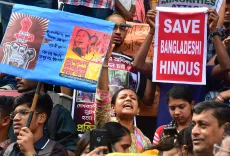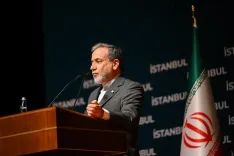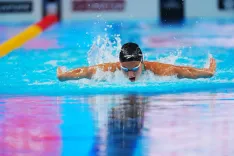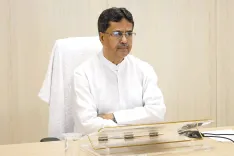Is the Russian Economy Thriving Despite Sanctions?

Synopsis
Key Takeaways
- Russian economy shows resilience to sanctions.
- International investors question effectiveness of new sanctions.
- EU implements additional sanctions against Russia.
- Dmitry Peskov emphasizes Russia's immunity to restrictions.
- Potential new US sanctions may impact negotiations.
Moscow, July 31 (NationPress) The Russian economy has shown a remarkable degree of resilience to Western sanctions after enduring years of such limitations, according to Kremlin spokesman Dmitry Peskov.
"We have been living under a significant number of sanctions for quite some time. Our economy continues to function under a wide range of restrictions. Naturally, we have developed a certain immunity to them," Peskov informed reporters on Wednesday when queried about Russia's readiness for potential new sanctions.
His comments followed a statement from US President Donald Trump, who mentioned he was reducing a previously announced 50-day timeline for a truce between Russia and Ukraine to just 10 days.
If negotiations fail, Trump cautioned that Washington would implement import tariffs, sanctions, or consider other measures.
Simultaneously, Trump acknowledged uncertainty regarding the effectiveness of such actions.
Earlier media reports indicated that international investors are downplaying the risks and effects of secondary sanctions on Russian energy exports, suggesting that such restrictions could elevate domestic prices in the United States and contradict Trump's campaign promise to reduce inflation.
Former US National Security Advisor John Bolton has also voiced skepticism about the potential effectiveness of these threats.
Recently, Russia has significantly broadened its entry ban list for representatives of EU institutions, member states, and other European nations.
This list comprises individuals from EU bodies and national authorities involved in politically motivated actions against Russian officials for alleged illegal detentions and deportations from Ukrainian territory, those advocating for a so-called tribunal against Russian leadership, and proponents of confiscating Russian state assets or diverting revenues to benefit Kyiv, as stated by Russia's foreign ministry.
The list further includes individuals responsible for creating or enforcing anti-Russia sanctions, those harming Russia's international relations, vocal Russophobic activists and academics, as well as EU Parliament members who have supported anti-Russia resolutions and legislation.
This includes law enforcement members, government and commercial organization officials, and citizens of EU and other Western nations responsible for supplying military assistance to Kyiv, facilitating dual-use product deliveries to Ukraine, engaging in actions undermining Russia's territorial integrity, or organizing blockades against Russian vessels in the Baltic Sea, noted the ministry in response to the EU's 17th and 18th sanctions packages against Russia.
"Future sanctions-related decisions by the EU will also be met with a timely and appropriate response," the ministry affirmed.
The Council of the European Union approved the 17th and 18th sanctions packages against Russia on May 20 and July 18, respectively.
The 18th package imposed sanctions on over 50 individuals and entities, reducing the price cap for Russian oil from $60 to $47.6 per barrel and banning the import of petroleum products derived from Russian oil.









